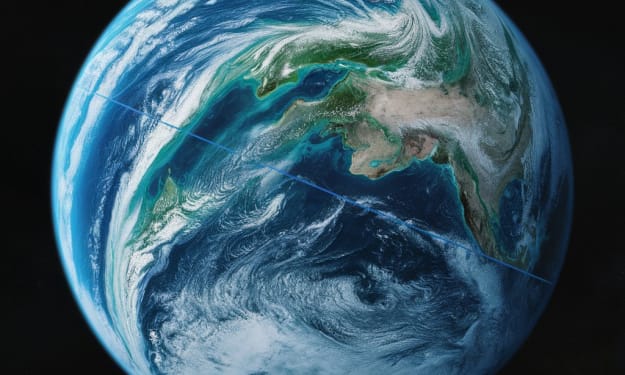Morocco Earthquake: A Devastating Natural Disaster
Morocco Earthquake: A Devastating Natural Disaster On February 17, 2023, a powerful earthquake struck Morocco, killing at least 560 people and injuring over 1,500. The earthquake, which had a magnitude of 6.6, struck the region of Khenifra, about 100 kilometers (62 miles) east of the capital city of Rabat. The earthquake was felt across much of Morocco, as well as in Algeria and Spain. It caused widespread damage to buildings and infrastructure, including roads, bridges, and schools. Many people were left homeless.

On February 17, 2023, a powerful earthquake struck Morocco, killing at least 560 people and injuring over 1,500. The earthquake, which had a magnitude of 6.6, struck the region of Khenifra, about 100 kilometers (62 miles) east of the capital city of Rabat.
The earthquake was felt across much of Morocco, as well as in Algeria and Spain. It caused widespread damage to buildings and infrastructure, including roads, bridges, and schools. Many people were left homeless.
The Moroccan government has declared a state of emergency in the affected region and has mobilized relief efforts. The United Nations and other international organizations have also pledged assistance.
The earthquake is a reminder of the vulnerability of Morocco to natural disasters. The country is located in a seismically active region and has experienced several major earthquakes in the past. In 1960, an earthquake with a magnitude of 6.7 killed over 12,000 people in Agadir.
The government of Morocco has taken steps to mitigate the risk of earthquakes, such as building earthquake-resistant structures and developing early warning systems. However, more needs to be done to protect the country from future disasters.
The earthquake has had a devastating impact on the people of Morocco. Many families have lost loved ones and their homes. The government and international community are working to provide assistance, but it will take time to rebuild the affected communities.
The earthquake is a tragedy, but it is also an opportunity to learn from the past and build a more resilient Morocco. The government should invest in earthquake preparedness and mitigation measures to protect the country from future disasters.
In addition to the human toll, the earthquake has also had a significant economic impact. The tourism industry, which is a major source of income for Morocco, has been particularly hard hit. The earthquake has also disrupted transportation and other essential services.
The government of Morocco is working to minimize the economic impact of the earthquake. It has provided financial assistance to businesses and individuals affected by the disaster. It has also waived import duties on construction materials to help with the rebuilding effort.
The Morocco earthquake is a reminder of the importance of disaster preparedness. The government and the people of Morocco are working together to recover from this tragedy and build a stronger future.
Here are some of the things that can be done to mitigate the risk of earthquakes in Morocco:
Buildearthquake-resistant structures.
Develop early warning systems.
Educate the public about earthquake safety.
Improve disaster preparedness and response plans.
Conserve natural resources, such as forests and wetlands, which can help to mitigate the effects of earthquakes.
By taking these steps, Morocco can reduce the risk of future earthquakes and protect its people and infrastructure
Build earthquake-resistant structures. This includes using strong materials and construction techniques that can withstand the shaking of an earthquake. The government of Morocco can require that all new buildings be built to earthquake-resistant standards.
Develop early warning systems. This would allow people to take shelter before an earthquake hits. The government can invest in developing and deploying early warning systems.
Educate the public about earthquake safety. This includes teaching people how to identify earthquake hazards, how to take shelter during an earthquake, and how to respond after an earthquake. The government can launch public awareness campaigns and provide earthquake safety training to schools and businesses.
Improve disaster preparedness and response plans. This includes having a plan for evacuating people from areas at risk of earthquakes, providing food and shelter to those who are displaced, and restoring essential services. The government can work with local authorities to develop and implement disaster preparedness and response plans.
Conserve natural resources, such as forests and wetlands. These natural resources can help to mitigate the effects of earthquakes by absorbing the shock waves. The government can promote the conservation of these resources.
In addition to these measures, the government of Morocco can also work to reduce the risk of earthquakes by:
Conducting research on earthquake risk in Morocco.
Improving the monitoring of seismic activity in the country.
Sharing information about earthquake risk with the public.
Collaborating with other countries to develop international standards for earthquake safety.
By taking these steps, Morocco can reduce the risk of future earthquakes and protect its people and infrastructure.
Here are some additional things that individuals can do to reduce their risk of being injured or killed in an earthquake:
Make sure your home is built to earthquake-resistant standards.
Install earthquake-resistant fixtures and appliances.
Have an emergency plan in place and practice it regularly.
Know where to go for shelter during an earthquake.
Have a first-aid kit and other emergency supplies on hand.
Stay informed about earthquake risk in your area.
By taking these steps, you can help to protect yourself and your family from the dangers of earthquakes.
About the Creator
Enjoyed the story? Support the Creator.
Subscribe for free to receive all their stories in your feed. You could also pledge your support or give them a one-off tip, letting them know you appreciate their work.





Comments
There are no comments for this story
Be the first to respond and start the conversation.